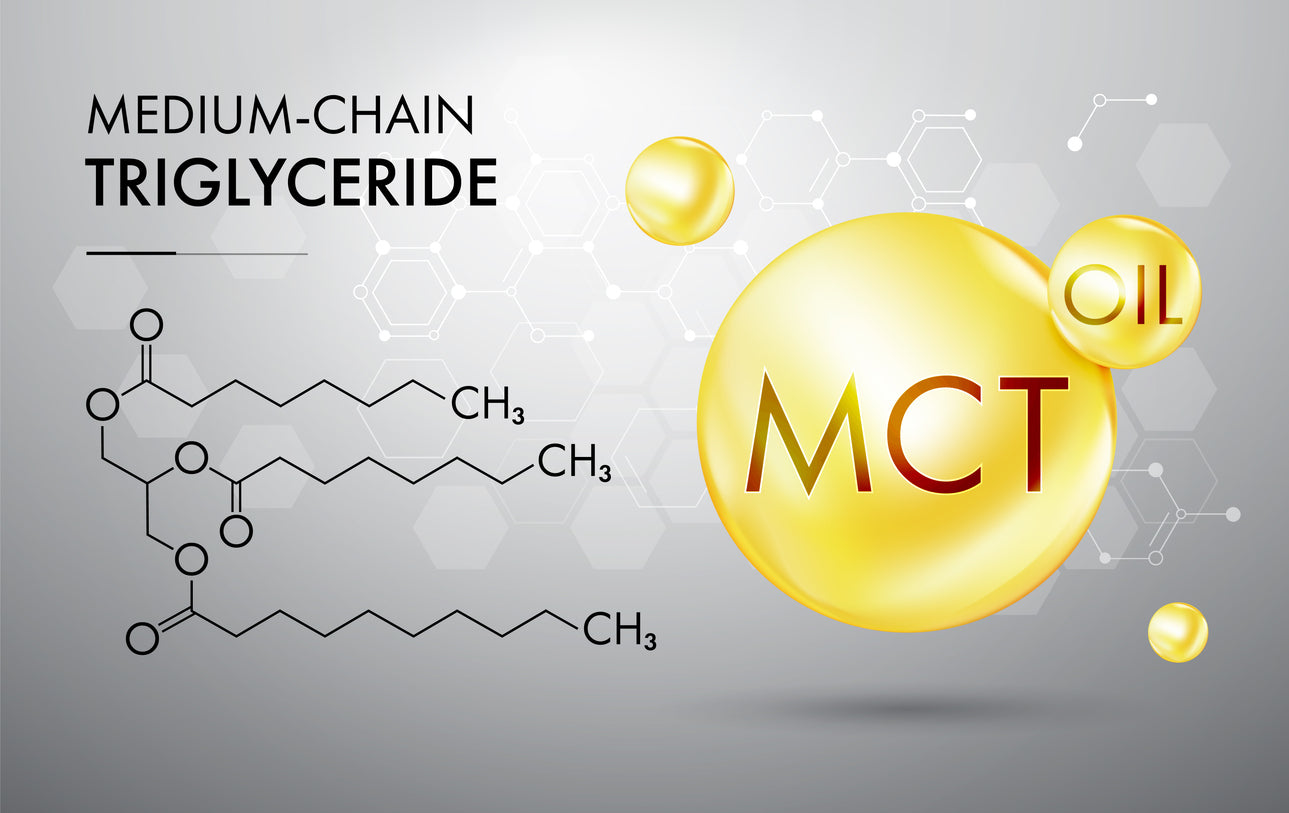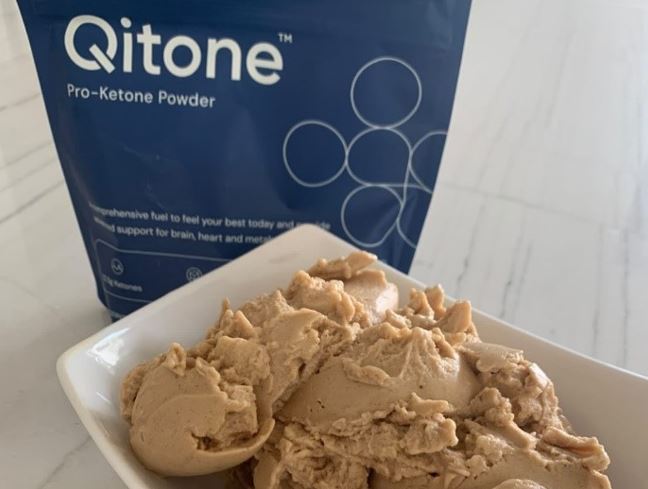How MCT Oil Works
MCT oil provides medium-chain fats that are quickly absorbed, sent to the liver, and rapidly converted into ketones - a clean, efficient fuel for the brain and body.
In this article, we’ll explore the science behind MCT oil, how it’s processed in the body, its benefits, and everything you need to know to use it effectively.
What Makes Up MCT Oil?
MCT oil typically contains four main types of medium-chain fatty acids: caproic acid (C6), caprylic acid (C8), capric acid (C10), and lauric acid (C12). C8 (caprylic acid) is particularly prized for its rapid conversion to ketones, offering quick and clean energy for the brain and body.
How the Body Processes MCTs
Quick Absorption and Digestion
Unlike most dietary fats that require bile salts and lengthy digestion, MCTs are absorbed quickly through the small intestine and transported directly to the liver via the portal vein. This rapid route skips several metabolic steps, making MCTs a fast-acting energy source.
Role of the Liver in Metabolism
Once MCTs arrive in the liver, they are swiftly converted into ketones - molecules that can power the brain, muscles, and heart. This process, known as hepatic ketogenesis, offers a highly efficient energy alternative to glucose.
Ketone Generation and Related Advantages
The Process of Ketogenesis
In the liver, C8 MCTs are metabolized through classical beta-oxidation pathways, producing beta-hydroxybutyrate (BHB), a potent ketone body. BHB is an ultra-efficient fuel that can support physical performance and cognitive function.
Mental and Physical Performance Benefits
Because ketones easily cross the blood-brain barrier, they offer a powerful energy source for neurons. Elevated ketone levels have been associated with sharper mental clarity, improved reaction times, enhanced endurance, and faster recovery.
MCT Oil’s Role in Weight Control
Boosting Caloric Burn
MCTs can increase the body’s thermogenic response - meaning they help the body burn more calories even at rest. Studies show that incorporating MCTs into the diet can enhance energy expenditure and fat oxidation.
Supporting Appetite Regulation
MCTS can help regulate appetite naturally by promoting feelings of satiety and stabilizing blood sugar levels. This may support better dietary control and reduce the temptation for high-sugar foods.
Additional Wellness Advantages
Cardiovascular Support
MCTs, particularly when converted into BHB ketones, have promoted heart health by improving blood glucose control, enhancing insulin sensitivity, and reducing oxidative stress, which are all key factors in maintaining cardiovascular resilience.
Natural Antimicrobial Effects
Certain MCTs, especially caprylic acid (C8), have potent antimicrobial properties. They can help combat harmful bacteria, yeast, and other pathogens within the gut, supporting a healthy microbiome.
Usage Guidelines and Safety Considerations
Ideal Intake Levels
For most individuals, starting with 1 teaspoon of MCT oil daily and gradually increasing to 1–3 tablespoons can allow the body to adapt without digestive discomfort.
Possible Adverse Reactions
At high doses, MCT oil can cause mild digestive symptoms such as stomach cramps, diarrhoea, or nausea. It’s best to start small and increase slowly. Individuals with liver disease should consult a healthcare professional before using MCT supplements.





Leave a comment
This site is protected by hCaptcha and the hCaptcha Privacy Policy and Terms of Service apply.